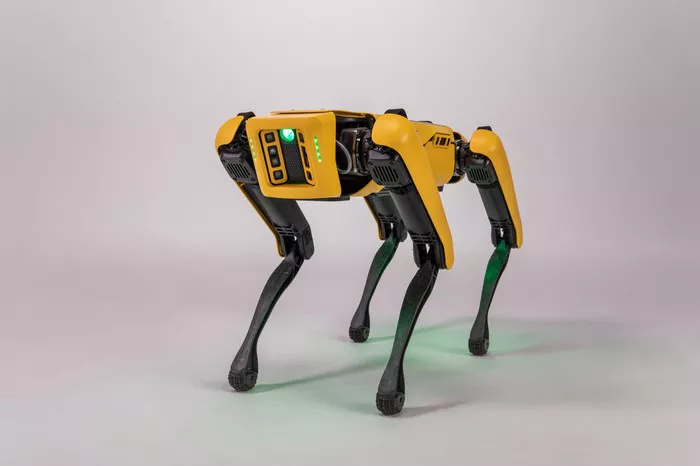At a rare and eye-catching moment, the agile quadrupedal robot SPOT, developed by Boston Dynamics, made its way into the Connecticut State Capitol during the inaugural Connecticut Center for Advanced Technology (CCAT) Day. Representing the University of New Haven’s Tagliatela College of Engineering, SPOT drew significant attention from state leaders, including Governor Ned Lamont, and highlighted the university’s cutting-edge research and education in robotics.
Dr. Shayok Mukhopadhyay, a faculty leader at the college, spearheaded the University’s booth at the event. He emphasized the importance of public and legislative awareness about the advanced technological work happening on campus. “Visibility is key,” Dr. Mukhopadhyay stated. “The public and legislators need to know what type of research capabilities and educational endeavors the University of New Haven is involved in.”
SPOT’s presence was not merely a spectacle but a tangible example of how hands-on, high-impact work is integrated into the University’s curriculum. The robot plays a crucial role in training students and advancing research. Dr. Mukhopadhyay reflected on the moment Governor Lamont grasped the sophistication of the work, saying it was “memorable” to see the governor’s reaction.
Serving as an entry point for innovation, SPOT allows graduate students to engage directly with advanced robotics hardware while developing research questions. The program aims to prepare students to confront the challenges posed by future AI-enabled autonomous systems. “We have submitted grants related to autonomous vehicle security,” Dr. Mukhopadhyay noted. “Several graduate students are actively working on search-and-rescue projects involving SPOT. Our hands-on courses in autonomy and robotics equip students to undertake such challenges.”
SPOT also interacted with industry leaders, including Ron Angelo, President and CEO of CCAT, further demonstrating the University’s role in developing skilled talent for Connecticut’s tech ecosystem. Events like CCAT Day strengthen ties between academia, policymakers, and industry, which could lead to increased support and growth for the University’s programs.
The University of New Haven continues to make strides beyond robotics, recently helping to establish the Connecticut AI Alliance. Its students have excelled in competitions such as hackathons and the Chem-e-Car challenge. Notably, the University’s robotics club qualified for the international finals of the University Rover Challenge (URC) for the second consecutive year, despite competing against larger teams in a highly competitive arena.
This success reflects the University’s commitment to a student-centered, hands-on educational approach. Students not only acquire advanced skills but also apply them to real-world problems, setting the institution apart.
“Our efforts focus on ensuring that the next generation of students is prepared to meet the challenges of robotics, AI, and emerging technologies,” Dr. Mukhopadhyay said. “Raising awareness about our capabilities here at the University of New Haven is an essential part of that mission.”
Related topics:

